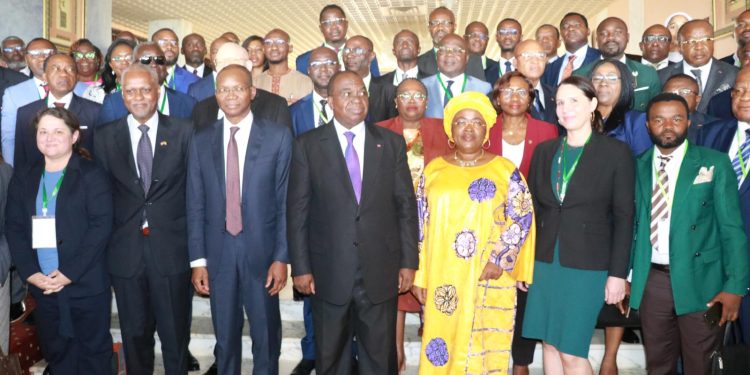Story, Louvier Kindo Tombe
The importance of Artificial Intelligence (AI) in the financial sector cannot be over emphasized. ”When you are sending WhatsApp messages, you are already a user or consumer of AI”, says Leah Malla Rockovsky, a financial expert.
She was speaking as she moderated one of the working sessions of the scientific days placed on the theme “risks and opportunities presented by AI in the financial sector: considerations for Cameroon”. The session brought together facilitators from Cameroon, Nigeria, France, and the US who shared their experiences of AI and how Cameroon can benefit from the technology.

The idea of the workshop was to raise awareness on the need to embrace AI in the financial sector by identifying and examining challenges and how they can be turned into opportunities in Cameroon. One of the challenges identifies was the issue of regulations. The experts all agreed on the fact that “there is need for a robust regulatory framework even before start talking AI”.
Government’s they say should play a primordial role in setting up a holistic framework of regulations to facilitate the integration of AI in the financial sector. Such regulations according to the participants will encourage and try to bring in economic operators in the informal sector to the formal sector.
Cameroon is actually not really advanced in terms of regulations but there is a digital privacy law in gestation in the country, besides other regulations in the country.
“Whether we are ready or not, new technologies do not wait for anybody”, says Leah Malla. “It is building enough infrastructures to be able to leverage those infrastructures to implement the innovative technologies.”
Regulations and infrastructure are vital in ensuring the use of AI in the financial sector, but the facilitators at the working session believe education is also important. “Not do anything and hope that technology will not come and take away certain jobs is not being realistic. Education, education, and education is the way forward,” says Leah.
One of the facilitators Michael Panzera, from the Council for International Consumer Protection and Privacy, United States Federal Trade Commission highlighted that “passing the law is one thing; governments need to give adequate tools for enforcement”.


“Regulations should also evolve, and the regulation should be determined according to the specific activity behind the AI,” says Alexandra Rizzi, Senior Research Director, Consumer Data Opportunities and Risks Centre for Financial Inclusion in the US.
About the Scientific Days

It was the first edition organized by the National Economic and Financial Committee of Cameroon. The two days event was placed on the theme “Transforming the Financial System through Digital Innovations: Stakes and Perspectives for Cameroon”.
The opening ceremony on Thursday June 6 was co-chaired by the Minister of Post and Telecommunications, Minette Libom Li Likeng, and the Minister of Finance, Louis Paul Motaze.
Other issues examined during the days were the role of technology in electronic payments in ameliorating global productivity, risk managements of digital transformation in the finance sector, open banking: perspectives for the finance sector, not leaving out reforms.
Participants separated with the idea of continuing the conversations ahead of upcoming editions of the scientific days.








